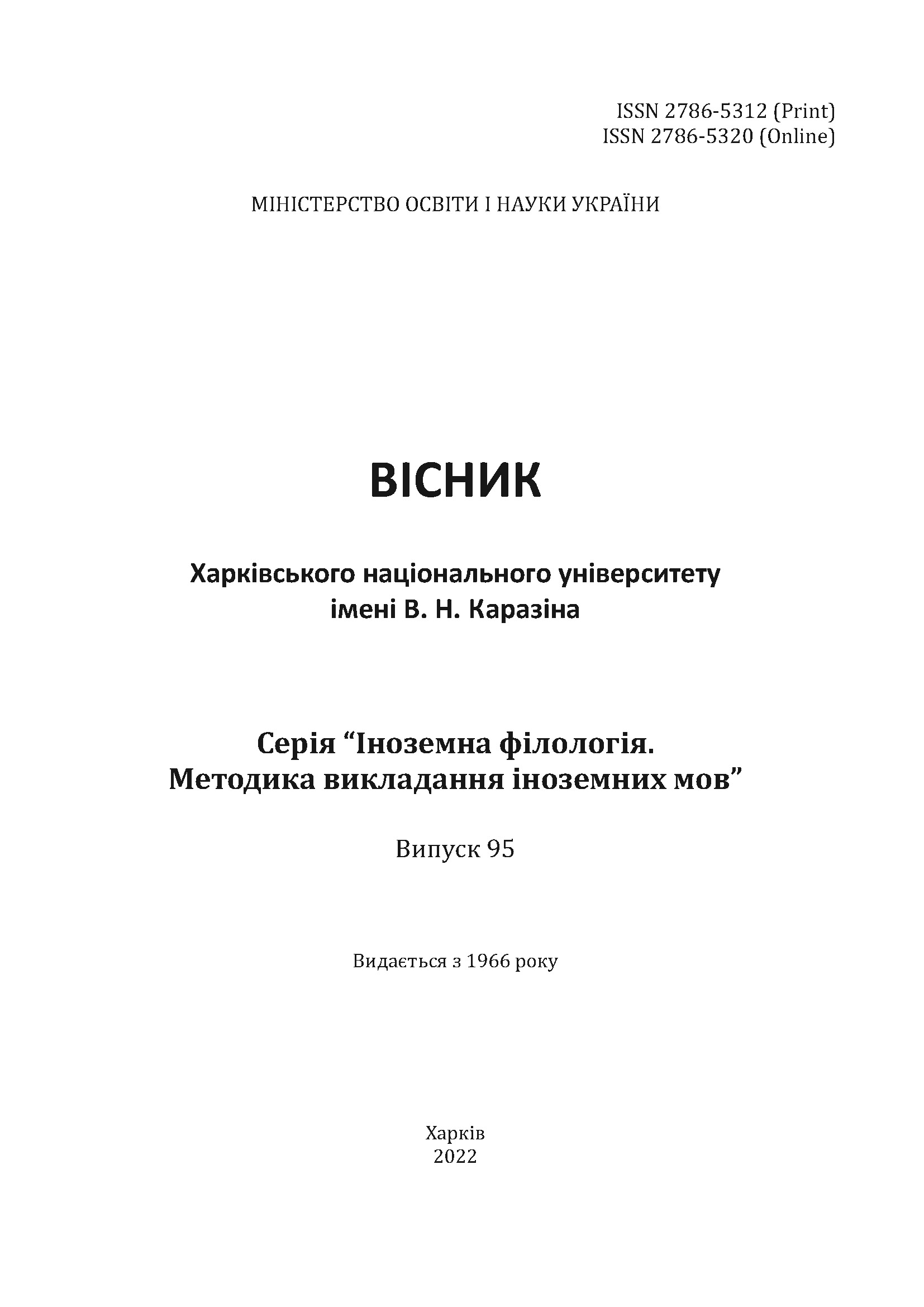Parody as the “epicenter” of carnivalization
Abstract
Carnivalization is the embodiment of direct connection with real life which allows us to establish the essence of the phenomenon of “permanent dialogic carnival” and to define the boundaries in disclosure of its nature. In this article we consider the genre of parody, the main participant of which is the discursive personality of the parodist. The aim is comprehensive multifaceted study and description of modern parody in polyphony of its forms. In parody, which heads the system of conversational carnivalized genres, where the addressee parodist acts as a communicative type of discursive personality, it was established the existence of a paradox of parody – the logic of alogism. This has become the scientific novelty of the study. Alogism is a surprise, a scandal, a game with the addressee. The logic of alogism in its basis implies ambiguity. Communicative features of the parody genre are established (intentionality, intentional explicit realization of comic means). Three types of parody are established in a dialogical relationship: 1) parody as a speech genre; 2) parody of the language; 3) parody as an element of the text. Two types of parody are analyzed: 1) parody of form / mocking imitation, 2) imitation and parody of content. Both types are based on hyperbole, grotesque, when either the situation itself, or the language of the characters, or the characters themselves are exaggerated and, moreover, significantly modified. A special characteristics of the parody genre is its interdiscursiveness. Parody performance is solely related to the act of evaluation and interpretation. The linguistic aspect of parody is related to the dialogue of the carnival world, which requires the parodist to expressive ideas, images, jokes, style and words; it is characterized by intensification of expression, emotional and artistic coloring. The perspective of the research is the contrastive study of parody as a linguocognitive phenomenon determined by cultural-historical context.
Downloads
References
Bahtin, M. M. (1997). Problema teksta [Text Problem]. Moskva: Russkie slovari Publ. (in Russian)
Bogdanov, V. V. (1990). Rechevoe obschenie: Pragmaticheskie i semanticheskie aspektyi [Speech communication: pragmatic and semantic aspects]. Leningrad: Leningradskiy gos. universitet Publ. (in Russian)
Formanovskaya, N. I. (2002). Rechevoe obschenie: Kommunikativno-pragmaticheskiy podhod [Speech communication: Communicative and pragmatic approach]. Moskva: Russ. yaz. Publ. (in Russian)
Holzer, P. J., Kienpointner, M., Pröll, J., & Ratheiser, U. (2011). An den Grenzen der Sprache. Kommunikation von Unsagbarem im Kulturkontext. Innsbruck: Innsbruck University Press.
Identity Psychosocial. (1968). International Encyclopedia of Social Sciences, 7, 61‒65.
Ivanischeva, O. N. (2015). Tolerantnyiy diskurs v sovremennom obschestve. [Tolerant discourse in modern society]. M.-Berlin: Direkt-Media Publ. (in Russian)
Karasik, V. I., & Gillespieb, D. (2014). Discourse Personality Types. Procedia – Social and Behavioral Sciences. (in Russian)
Kozhina, M. N. (2008). Stilistika russkogo yazyika [Stylistics of the Russian language].Moskva: Flinta Publ. (in Russian)
Levitskiy, A. E. (2010). Funktsionalnyiy podhod v sovremennoy lingvistike [Functional approach in modern linguistics]. Kyiv: Kyivskyi universytet Publ. (in Russian)
Samokhina, V. O. (2019). Karnavalizacija u fokusi linghvokreatyvnoji dijaljnosti Homo Artifex [Carnivalization in the light of linguocreative activity of homo artiflex]. The Journal of V. N. Karazin Kharkiv National University. Series: Foreign Philology. Methods of Foreign Language Teaching, 88, 26–34. doi: https://doi.org/10.26565/2227-8877-2018-88-03. [in Ukrainian]
Tarasova, S. (2019). Carnival figure of a fool-wisecracker in the modern linguistic culture of the United States and Great Britain. (in press)
Vasileva, N. V. (1996). Kratkiy slovar lingvisticheskih terminov [A brief dictionary of linguistic terms]. Moskva: Russ. yaz. Publ. (in Russian)
Weber, M. (2006). The sociology of charismatic authority. The celebrity culture reader, 55(71), 61–64.
Great jokes about Americans. Retrieved from https://thoughtcatalog.com/ christine-stockton/2014/07/10-great-jokes-about-americans/ (last accessed 16.05.2022).
Parodies. USA. Retrieved from http://kinospy.com (last accessed 16.05.2022).
World Joke. Retrieved from http://joke$joker.com (last accessed 16.05.2022).




